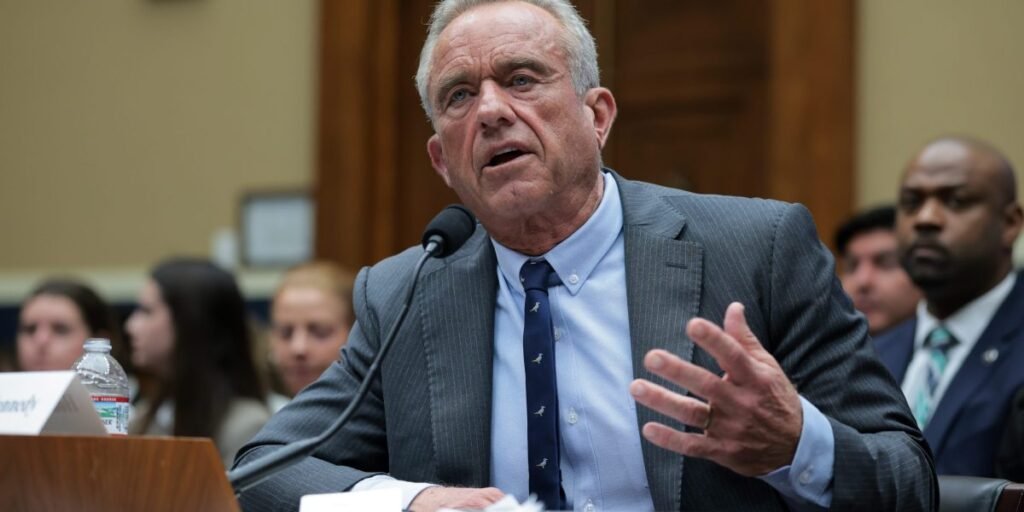
Testifying before Congress late last month, Health and Human Services Secretary Robert F. Kennedy Jr. made a major plea on the power of health wearables.
“People can take control over their own health. They can take responsibility. They can see what food is doing to their glucose levels, their heart rates, and a number of other metrics as they eat it,” he said, referencing his “Make America Healthy Again” agenda slogan. “We think that wearables are a key to the MAHA agenda.”
RFK Jr. has taken his MAHA agenda one step further, making a big prediction on the $80 billion wearable tech industry, which encompasses the $13 billion glucose-monitor market.
“My vision is that every American is wearing a wearable within four years,” he said.
RFK Jr., however, walked back his sentiment in a statement about wearables to Axios this week, stating, “They are not for everyone because of concerns like cost and personal privacy.”
Since taking the helm of the HHS, the secretary has enacted sweeping staffing changes in the department and has championed false claims about vaccines. Still, mitigating chronic diseases in the U.S. through preventive measures is at the forefront of his mind.
Health wearables, such as sleep rings and glucose monitors, have gained popularity alongside a growing interest in preventive health. They track people’s heart rates, blood-sugar levels, and other vital signs. With arduous wait times and an evolving health care landscape, consumers are opting in for more data on their health outside the four walls of a hospital.
“We’ve always believed that there’s a transformation afoot in the way people address their health, meaning that they’re going to be in charge of it,” Tom Hale, CEO of Oura, which produces the Oura sleep tracker, told Fortune earlier this month.
RFK Jr. also previewed a “major advertising campaign” launching next week around preventive health, which will undoubtedly include wearables.
However, democratizing access to wearables and ensuring they protect people’s privacy were among the key questions posed to RFK Jr. at the testimonial. Experts have widely warned of data breaches, given that tech companies are not subject to the same privacy controls as health systems and insurers. Moreover, wearables only improve health outcomes if people actually make behavioral changes.
In addressing concerns, the secretary shared, “We are exploring ways of making sure that those costs can be paid for.”


